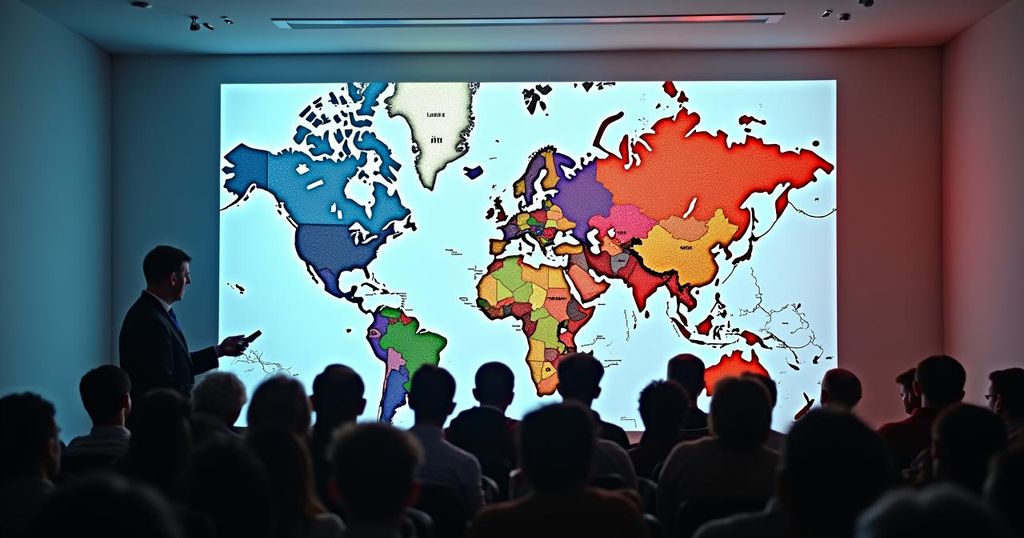Netanyahu at UN: India as a ‘Blessing’, Iran as a ‘Curse’

Israeli Prime Minister Benjamin Netanyahu displayed two maps at the UNGA, categorizing India as a “Blessing” and Iran as a “Curse,” amid rising tensions with Iran. He called for global sanctions against Iran and warned of consequences should Israel be attacked, amid broader discussions on regional security and alliances.
During the United Nations General Assembly session, Israeli Prime Minister Benjamin Netanyahu presented two maps, designating India as a “Blessing” and Iran as a “Curse.” This symbolic gesture was made against the backdrop of escalating tensions with Iran, a development reported widely by news agencies, including ANI. Netanyahu’s “Blessing” map illustrated an envisioned alliance among Israel and its Arab partners, aiming to forge a connection between Asia and Europe via a land bridge traversing from the Indian Ocean to the Mediterranean Sea. Contrastingly, the “Curse” map depicted what Netanyahu characterized as an “arc of terror” propagated by Iran extending from the Indian Ocean to the Mediterranean, emphasizing Iran’s influence in regional conflicts. Furthermore, these maps included marked Palestinian territories, specifically the West Bank, Gaza, and Syria’s Golan Heights, indicating their status as parts of Israel according to Netanyahu’s perspective. The presentation of the maps exemplified Netanyahu’s broader call for global allies to implement sanctions on Iran and to collaborate with Israel in curbing Iran’s nuclear ambitions. Netanyahu articulated, “For too long the world has appeased Iran, it turns a blind eye to its internal repression, it turns a blind eye to external aggression. That appeasement must end and that appeasement must end now.” He alluded to Iran’s support of Hezbollah and conveyed a formidable warning, stating, “I have a message for the tyrants of Tehran. If you strike us, we will strike you. There is no place in Iran where the long arm of Israel cannot reach. And that is true for the entire Middle East.” The rising tensions between Israel and Iran have been exacerbated since the assassination of Hamas leader Ismail Haniyeh in July in Tehran and with Iran condemning Israeli military operations in Lebanon as a “flagrant war crime.”
The relationship between Israel and Iran has been one of significant tension, particularly in recent years. This animosity has been heightened due to Iran’s support for groups such as Hezbollah, which Israel perceives as a direct threat. The political dynamics in the region are complicated by longstanding territorial disputes involving Israel and the Palestinian territories, as well as the broader geopolitical interests of various nations. The presentation of maps by Prime Minister Netanyahu at the UNGA serves as a rhetorical device aimed at garnering international support against Iran while underscoring Israel’s aspirations for regional alliances.
In summary, Prime Minister Benjamin Netanyahu’s address at the United Nations General Assembly, featuring the maps likening India to a “Blessing” and Iran to a “Curse,” illustrates the ongoing geopolitical tensions involving Iran and highlights Netanyahu’s call for international action against it. His firm statements reflect Israel’s intent to proactively address perceived threats from Iran, particularly in light of recent escalations in conflict. The implications of these actions call for heightened global awareness and potential alliances in the region as Israel seeks to strengthen its security posture against Iran.
Original Source: www.hindustantimes.com








